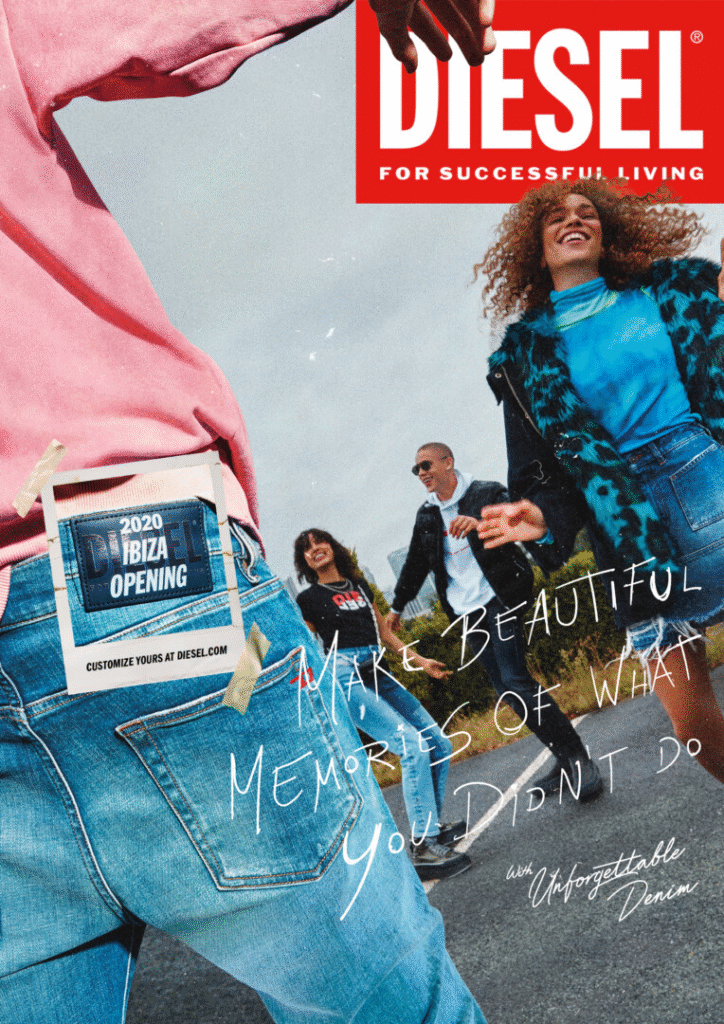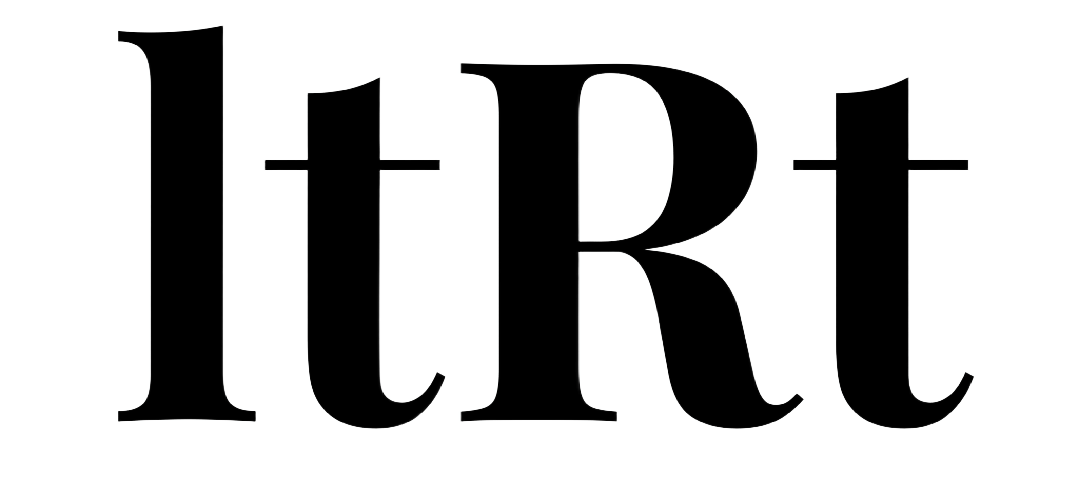
The fashion world is fiercely competitive, where brand identity reigns supreme. A recent court case in Ireland showcased this, exposing a decades-long deception and emphasising the importance of safeguarding trademarks. In a landmark decision, the Irish High Court ruled against Monteux Holdings Limited, a County Monaghan-based jeans manufacturer, for its “dishonest and wrongful” use of the well-established “Diesel” trademark since 1979. This article delves into the intricate details of the case, exploring the arguments presented, the court’s reasoning, and the broader implications for businesses operating in the global marketplace.
The Rise of Diesel Spa: Building a Legacy in Denim
Diesel Spa, Renzo Rosso’s brainchild, emerged from the streets of Malvina, Italy, in 1978. The brand quickly carved a niche for itself with its innovative, youth-oriented approach to denim wear. Diesel’s clothing transcended mere function, becoming a statement piece that embodied rebellion and individuality. A focus on quality, design, and a distinct marketing strategy propelled the brand to international recognition. By 1982, Diesel had established a foothold in the Irish market, offering its unique brand of denim to Irish consumers.
The Trademark Dispute: Monaghan Jeans vs. Diesel Spa
While Diesel was weaving its narrative in the fashion world, Monteux Holdings Limited, a company based in County Monaghan Ireland, began using the “Diesel” brand for its jeans in 1979. This predated Diesel Spa’s official entry into the Irish market by three years. This seemingly minor detail became the crux of the legal battle that would ensue decades later.

The clash over the ‘Diesel’ brand name in Ireland took centre stage when Monteux Holdings was accused of infringing on Diesel Spa’s trademark. The dispute, which spans thirty years, originates from the 1992 Irish trade mark filing for the word ‘Diesel’.Monteux Holdings Limited defended its use of “Diesel” on the grounds that its use of the term predated Diesel Spa’s presence in Ireland. They argued that their use of the name was independent and legitimate. However, this argument proved to be flimsy when scrutinized by the court.
Court’s Verdict on Monaghan’s Use of the “Diesel” Brand
The Irish High Court, presided over by Justice Brian Cregan, meticulously examined the evidence presented by both parties. The court acknowledged Monteux’s earlier use of “Diesel” but cast a critical eye on the legitimacy of their claim. Judge Cregan pointed out that Diesel Spa had established a strong brand presence in Europe well before 1979. Given the widespread recognition of the Diesel brand and the nature of the clothing industry, the court found it “more reasonable to conclude” that Monteux had deliberately capitalized on Diesel’s established reputation for their benefit. The court, in particular, was critical of the lack of evidence given by Monteux to show how they came to use the name “Diesel” The court therefore deemed Monteux’s use of “Diesel” to be “dishonest and wrongful,” a blatant attempt to deceive consumers and ride the coattails of a successful brand.
Rebranding and Financial Repercussions for Monaghan Jeans
The court’s verdict sent shockwaves through Monteux Holdings Limited. As a result of the ruling, Monteux is now prohibited from using the “Diesel” brand for its jeans. This verdict necessitates a complete rebranding effort for the company. They will need to develop a new brand name, redesign logos and packaging, and embark on a marketing campaign to re-establish themselves in the market. This process is likely to be expensive and time-consuming, potentially impacting Monteux’s sales and overall brand image.
Furthermore, Diesel Spa may seek damages from Monteux for the years they profited from the infringing trademark. The exact amount of these damages will be determined in a separate legal proceeding. This adds another layer of financial burden to the already precarious situation for Monteux Holdings Limited.
Lessons for Businesses on Trademark Protection

The Monaghan Jeans vs. Diesel Spa case serves as a cautionary tale for businesses of all sizes. It underscores the paramount importance of trademark protection. A trademark is a vital intellectual property right that safeguards a brand’s unique identity and prevents others from exploiting its reputation. Businesses should conduct thorough trademark searches before settling on a brand name to ensure that it does not infringe on existing trademarks. Additionally, trademark registration offers a robust layer of legal protection and facilitates enforcement actions in case of infringement.
Global Implications: Trademark Protection Beyond Borders
The repercussions of this case extend beyond the two companies involved. It sends a strong message to the fashion industry, where brand identity plays a pivotal role. The ruling emphasizes that courts will not tolerate blatant attempts to copy established trademarks, even if the infringing use predates the brand’s official entry into a specific market. This serves as a deterrent for companies seeking to exploit the popularity of successful brands for their gain.
A case like this raises important questions about the balance between protecting established brands and fostering fair competition in the marketplace. While strong trademark laws are essential to prevent consumer deception and ensure brand owners reap the rewards of their investment in building a reputation, overly broad enforcement could stifle innovation and hinder new businesses from entering the market. Moving forward, it is crucial to find an equilibrium between protecting established brands and fostering a healthy environment for competition.

Here are some potential approaches to strike this balance:
- Trademark laws should be clear, concise, and easily accessible to businesses. This allows brand owners to understand their rights and obligations regarding brand names and logos.
- Enforcement actions should be proportionate to the severity of the infringement. A small, unintentional use of a similar name should warrant a cease-and-desist letter, while a long-term, deliberate attempt to copy a brand would likely necessitate legal action.
- Government agencies or industry bodies could offer resources and support to help new businesses navigate the trademark registration process. This would encourage them to adopt legitimate brand names from the outset, fostering a more ethical and competitive marketplace.
In today’s globalized world, brands operate across borders. The Monaghan Jeans case serves as a reminder of the importance of international trademark protection. Crucially, when Monteux entered the Irish market it did not have a trademark in Ireland. Businesses with international aspirations should therefore consider registering their trademarks in key markets to safeguard their brand identity on a global scale. International treaties like the Agreement on Trade-Related Aspects of Intellectual Property Rights (TRIPS) provide a framework for international trademark protection, but navigating the legalities can be complex. Consulting with intellectual property lawyers experienced in international trademark law is crucial for businesses aiming to establish a global presence.
Ultimately, the Monaghan Jeans case serves as a stark reminder that shortcuts and unethical practices can have severe consequences. Building a strong brand reputation requires dedication to quality, innovation, and ethical business practices. Consumers today are increasingly discerning and value brands that stand for something. By focusing on creating a unique brand identity and fostering genuine customer relationships, businesses can achieve sustainable success without resorting to deceptive tactics.
The fashion industry thrives on creativity and innovation. Strong trademark protection incentivizes businesses to invest in design and development, leading to a wider variety of products for consumers. However, ethical brand practices are equally important. By respecting intellectual property rights and fostering a culture of originality, the fashion industry can ensure a healthy environment that benefits both businesses and consumers. The Monaghan Jeans vs. Diesel Spa case serves as a valuable learning experience, highlighting the importance of striking a balance between protecting established brands and fostering a thriving, ethical fashion industry.
CONCLUSION
The Monaghan Jeans vs. Diesel Spa case serves as a cautionary tale for businesses of all sizes, particularly those operating in the competitive world of fashion. It underscores the critical importance of safeguarding intellectual property through trademark protection. By conducting thorough trademark searches, registering trademarks in key markets, and adhering to ethical business practices, companies can avoid costly legal battles and build a strong brand reputation based on authenticity and innovation.

This case also serves as a springboard for a larger conversation about striking a balance between protecting established brands and fostering fair competition. Clear and transparent trademark regulations, proportionate enforcement actions, and support for new businesses are crucial in creating a healthy and ethical marketplace.
Ultimately, consumers benefit the most from a thriving fashion industry that prioritizes both creativity and ethical practices. By respecting intellectual property rights and focusing on originality, businesses can ensure a future filled with diverse, high-quality fashion choices for consumers around the world. The Monaghan Jeans vs. Diesel Spa case, though a cautionary tale, presents an opportunity for the fashion industry to learn, adapt, and move forward in a more ethical and innovative direction.









